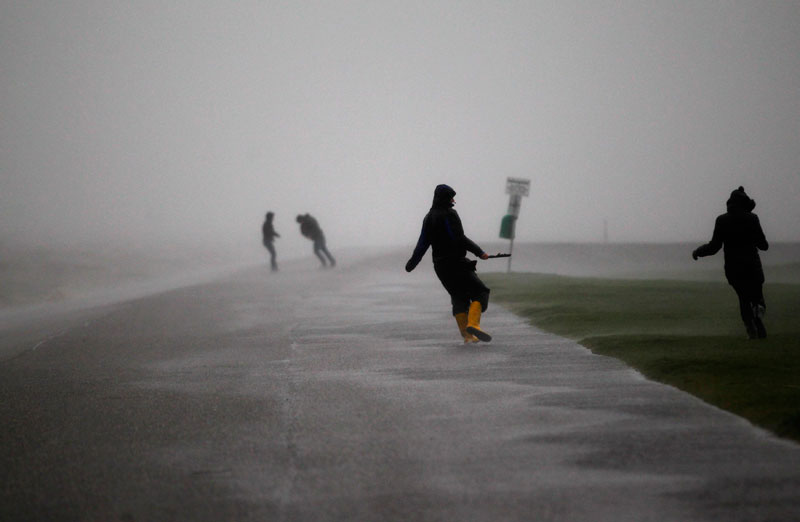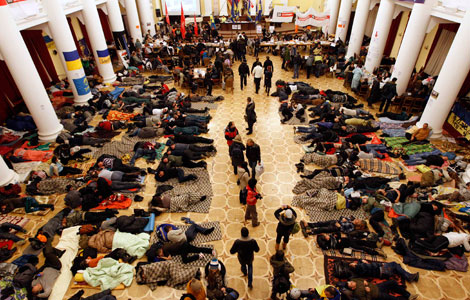

 |
|
People walk on the North Sea beach near the town of Norddeich, Dec 5, 2013. A storm named 'Xaver' brought strong winds and high tides to the northern coasts of Germany on Thursday. [Photo/Agencies] |
British authorities said the Thames Barrier, designed to protect London from flooding during exceptional tides, would shut on Thursday night and warned of "the most serious coastal tidal surge for over 60 years in England". Prime Minister David Cameron called two emergency meetings to discuss strategy.
Two people were killed in Britain as the nation's weather office measured winds of up to 225 km per hour (140 mph) when the storm slammed Scotland and parts of England.
A lorry driver was killed and four people injured when his vehicle overturned and collided with other vehicles in West Lothian, Scotland, police said, while a second man died near Nottingham in central England when he was hit by a falling tree.
In western Denmark the 72-year-old female passenger of a truck died when the vehicle overturned in high winds.
More than 100,000 homes were left without power across Britain, 80,000 of them in Scotland, according to energy company SSE.
North Sea oil and gas producers including ConocoPhillips , Maersk Oil, and Statoil cut production and evacuated staff from some platforms.
All train services in Scotland were cancelled on Thursday morning due to debris on the tracks but services were slowly restored during the day. Lifeboat crews were called to rescue people from flooded homes in Rhyl in north Wales.
Low-lying coastal areas of eastern England were waiting for the storm to hit on Thursday evening, with the Environment Agency issuing 41 severe flood warnings, the highest category.
Police were advising more than 15,000 people to evacuate east coast areas vulnerable to tidal surges, although sea defences have been strengthened since storms and flooding killed hundreds on the North Sea coast in 1953.







